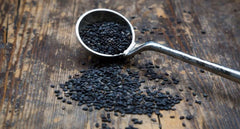Organic fertilizer are the fertilizer from organic, natural materials. organic fertilizers include manure, compost, vermicompost, peat, seaweed and guano.
Based on the type, of organic fertilizers can be classified into solid organic fertilizer and liquid organic fertilizer. Organic fertilizers contain a complete nutrient. Even contains other organic compounds that are beneficial to plants, such as humic acid, fulvic acid, and other organic compounds.
Biofertilizers play a crucial role in organic farming. The microbes have a basic role in fixation of the atmospheric Nitrogen and which is very crucial in enhancing the fertility of the soil. These microbes also convert insoluble phosphates to soluble, making them available for the plants for their better development and growth.or we can say that Bio-fertilizer is fertilizer that contains living organisms that synthesis the atmospheric plant nutrient in the soil or in the plant body, the bio fertilizers may be in solid or liquid medium and micro organisms are in huge numbers.
Bio fertilizers are consists of the helpful micro organisms like bacteria,fungus . Those are increase the soil fertility Bio organisms are fix the atmospheric Nitrogen, decrease the harmful organism population Organic fertilizers are consist of decaying plant & animal materials Organic fertilizers are increase the water holding capacity of the soil & improve the soil texture.
organic fertilizers are made of biowastes in agriculture and livestock with which a certain amount of feed additives or pesticides may persist , for example copper and zinc in feed and antibiotics in the fecal. In some cases, these material may even pose danger to water quality or for the crop growth.
Organic fertilizers which is animal or plant based also activate natural microflora in the soil and rhizosphere of the plant and are excellent means to enhance natural microbial population. In biofertilizers you add microbe formulation of your choice, but for the establishment and multiplication of the microbe in biofertilizer organic fertilizer is a pre-requisite. Biofertilizer should be used only after ascertaining the microbial count. We find farmers using biofertilizers- but on testing many of them have no live count of the microbe. Best way is to enrich your soil with organics and that to in advance, as organics added give best results after some months.
Organic fertilizers distribute the nutritients more slowly and steadily than mineral fertilizers. Therefore, there is no risk of overfertilization and the soil will not be harmed.
If we take some examples –
- Azobactor - Azotobacter can be used with crops like wheat, maize, mustard, cotton, potato and other vegetable crops.
- Azospirillum inoculations are recommended mainly for sorghum, millets, maize, sugarcane and wheat.
- Blue green algae belonging to a general cyanobacteria genus, Nostoc or Anabaena or Tolypothrix or Aulosira, fix atmospheric nitrogen and are used as inoculations for paddy crop grown both under upland and low-land conditions.
- Anabaena in association with water fern Azolla contributes nitrogen up to 60 kg/ha/season and also enriches soils with organic matter.
All above means the nutrients made available to the plants by the help of micro organisms are bio-fertilizers. Bio-fertilizers are element specific and are organic.
Some of the products of geolife which increases the yield of crop and which are superior organic yield enhancers are-
GEOLIFE GROWTH KIT FOR CROPS NUTRITION & DEVELOPMENT

- Promotes Root & Shoot Development
- Improves Branching & Fresh Growth
- Increases Resistance to Pests & Diseases
- Increases Stress Tolerance
- Dosage: Add Both the Pouches and Dissolve in 200 litres of water





